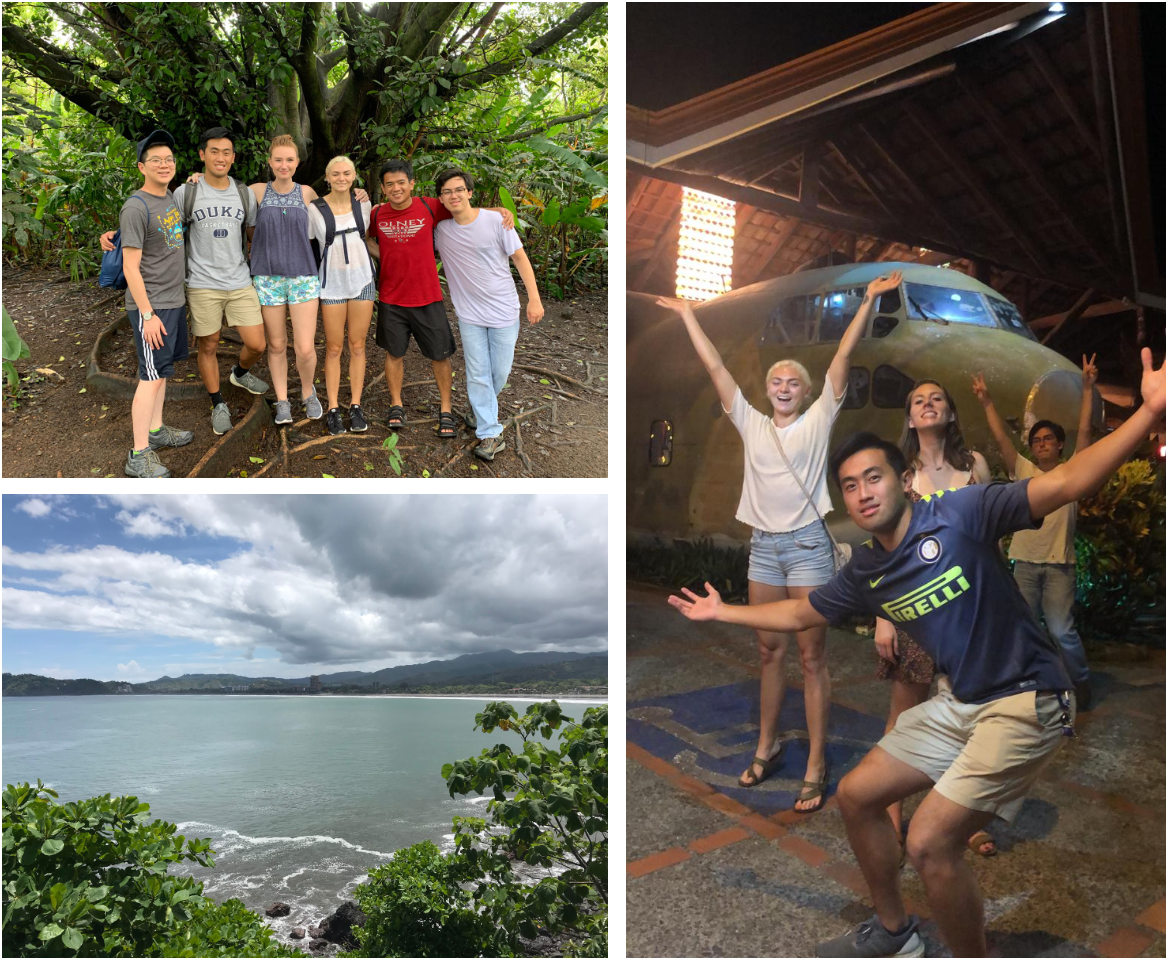When I was in high school, most of my classes were predetermined for me. The only thing they trusted us to choose as underclassmen was what foreign language we wanted to learn: French, Spanish, or Chinese. Looking back, struggling to buy vegetables in the friendly neighborhood Auto Mercado, I regret taking the easy way out and choosing Chinese. Fourteen year old me would have never imagined that eight years later I would have an internship and be conducting clinical observations in Costa Rica, where Spanish is not only preferred, but also sometimes required. But had I planned more, I am certain that I would have never been exposed to the things that have since come to define me or lead me to take part in Global Medical Innovation, a Masters program in Bioengineering. That being said, I still wish that yo podría hablar español (Credits to Google translate).
Visiting Costa Rica once before many years ago, I remember the beaches, the volcanoes, and even the monkeys who once ripped a bag of dark chocolate covered cacao nibs out of my hands at the beach (hypothetically of course). But coming back many years later, I began to appreciate a different side of Costa Rica. Medical devices are Costa Rica’s largest industrial export, accounting for 4% of the total GDP. In order to prepare for the upcoming summer, the first week we were here we took part in a Medical Innovation Bootcamp with students from the Universidad de Costa Rica (UCR) and Technológico de Costa Rica (TEC). Condensing the first semester of senior design into four days of lectures and class time, we were tasked to research a predefined need, brainstorm potential solutions, and even conduct a preliminary market analysis and IP strategy. Focusing on pediatric asthma, my team developed identified common usage errors with inhalers and developed indicators to improve ease of use. Kimett Piedra, one of my teammates even developed a Solidworks rendering to highlight the product.
The next week we focused on the beginning part of the design process. This was an area that I was particular keen in learning more about since in the past I have questioned myself on which problems are worth solving and have definitely engineered solutions for problems that ended being inconsequential. Paul Fearis, a professor from Duke University and needs finding consultant for 30 years, spoke at length about his process, beginning with a comprehensive way to observe and record finding on a mind map and ending with a way to properly identify the most pressing problems and scope it effectively. As a part of this lecture series we were able to travel to some of the national hospitals in Costa Rica and put the skills to practice, looking for needs in clinical settings. I observed the pulmonary endoscopy suite at the Hospital Nacional de Niños, annotating the procedure minute by minute looking for areas of improvement. Even though this was just an exercise, I observed that a better system could be devised for children who needed to be endoscoped through their tracheostomy, as this usually results in a lack of oxygen and even suffocation. In the future we will have the opportunity to observe more procedures and identify more needs present in the same and different departments, so stay tuned for more developments on this front.
But what about the volcanoes and beaches you may ask? Did your cacao nibs get stolen again? Well on the weekends we were able to take two trips. The first week we traveled to Manuel Antonio National Park where we hung out at the beach and swam in the ocean. Here, after I consumed an unhealthy amount of salt water, I learned how to body surf. There was also a bar that was built around an airplane that was also pretty cool. The second weekend we went to Arenal Volcano National Park and La Fortuna where we hiked to the base of the mountain and visited Baldi Hot Springs. Pictures are worth a thousand words, so in order to pad my word count a bunch of them are included below. Also to answer the second question, I didn’t buy any cacao nibs so they couldn’t be stolen again. Problem solved.
So what’s next? Well in order to find out you can read about my and the other GMI student’s posts here during the summer and throughout the school year. One person already posted a great blog on some of the most traditional food available in Costa Rica. But more importantly, if any of you are fluent in Spanish please let me know. If it wasn’t for the other students, habría muerto de inanición.

